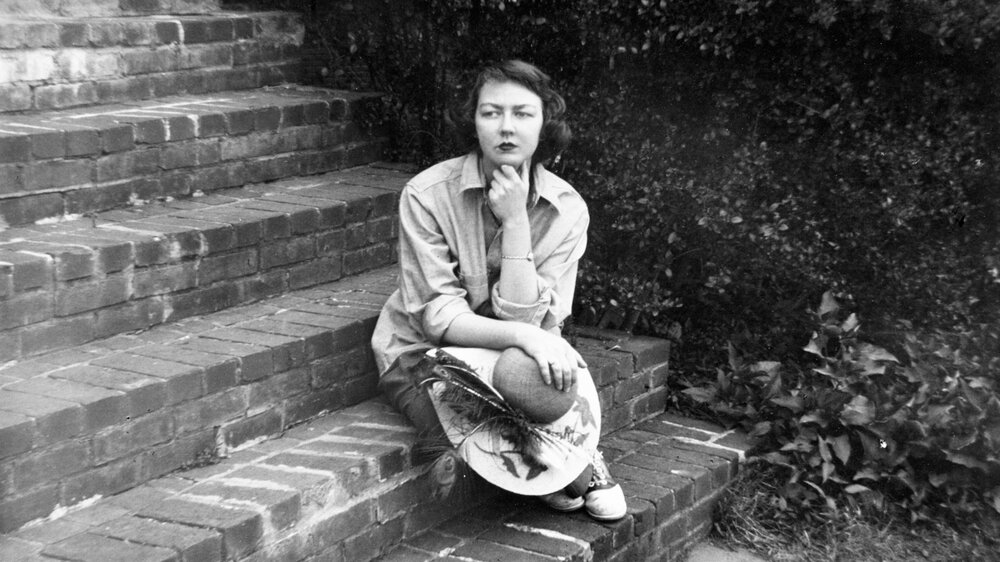
At its best, Flannery makes lapsed readers wish they took up the habit again. And on a personal level, it makes me wish that I wasn’t trying to finish a Dostoyevsky audio book. The documentary is an introduction to Flannery O’Connor, showing us her letters. And it brings Mary Steenburgen to breathe life onto the author’s innately witty words. It shows us O’Connor’s work as a cartoonist. It also wrestles with the idea of her as a feminist. It’s a word she never dared to use but it’s an ideology that some of her readers see in her when she pivots from drawing to writing.
O’Connor went from writing short stories to novels, her first being Wise Blood. The movie shows us a cinematic adaptation of the book about a preacher who, strangely enough, is trying to run away from God. The book then follows that outrageous journey, one of many in her multiple works. Filmmakers and creators of TV movies would eventually use her work as source materials, a testament to her legacy. But those adaptations would come in a generation after the publication of those source materials. Like half of all people who ever dared to write, she released those works to a readership who, at first, didn’t understand her. The misunderstood writer is relatable but the movie can’t, admittedly, escape how trope-y that can be.

O’Connor comes as part of the wave of writers of the mid-2th century who came from the South. Like most writers, she mined her personal life, basing her characters on real life people. She then, funnily enough, denied those references when those real life people ask her if they are the basis of those characters. She also chronicled her neck of the woods, a place already full of racial tension, dealing with an America that’s becoming more of a melting pot. This film, archive heavy as it is, also shows her work about the influx of Europeans who had to move to the South because of WWII. It connects those characters with her own identity as a half-Catholic, half-Jewish woman living in the South.
O’Connor’s work and her letters grapple with subjects like homosexuality as much as it does race. The doc, then, deals with the danger of reading older work, its interview subjects confessing not knowing what she thinks of the ‘other’. Thankfully, she doesn’t have the same bigoted views that her characters hold against others. Her work often uses slurs that academics coming from diverse backgrounds defend. I wish that this movie and other film like it welcomed opposing viewpoints. Only showing one side of the debate makes this doc feel like a puff piece. Otherwise, this doc does prove that her work is worthy of admiration and study.
Flannery is now playing in virtual cinemas.
- Release Date: 8/22/2020

